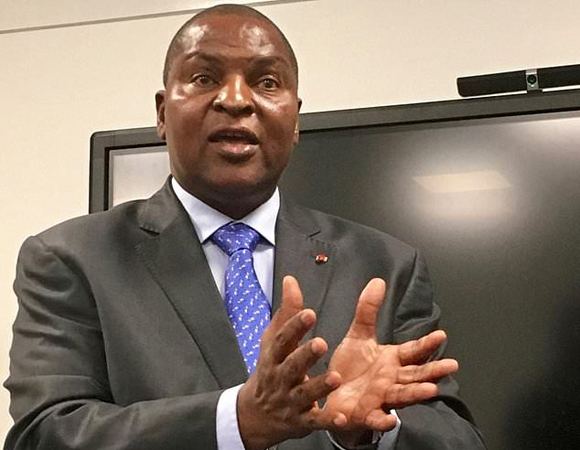In the Central Africa Republic, Mali’s coup stirs bad memories


In 2013, the Seleka, a rebel coalition drawn largely from the Muslim minority, toppled then-president Francois Bozize, plunging the CAR into a spiral of violence that continues today.
The fragility of the state is visible whenever his successor, Faustin Archange Touadera, ventures forth.
The president is accompanied by armoured vehicles, pickup trucks carrying soldiers and an ambulance with screaming sirens, in a convoy travelling on roads closed to traffic.
“The Malian syndrome could be happen here,” said Edgard Kette-Djama, a teacher in Bangui. “We have an army that is politicised. Signs of frustration can be seen among the population.”
Vulnerable president
There are just four months left before presidential and parliamentary elections, and Touadera’s problems are evident.
Elected in 2016, he has failed to crack down on two issues of deep concern — entrenched corruption and militias that control two-thirds of the CAR’s territory.
The militias still inflict many civilian casualties, despite a peace accord signed in 2019 and the presence of 11,600 peacekeeping troops in the United Nations mission in the CAR (MINUSCA).
As in Mali, the presence of UN troops sits ill with much of the population. Many people here say the peacekeepers are too passive with the militias.
This perceived weakness may be a temptation, said Nathalia Dukhan, a researcher with the US anti-corruption watchdog The Sentry.
“The leaders of the armed groups now think that the UN presence is no obstacle to violently overthrowing the regime in Bangui,” Dukhan observed.
On the other hand, the mandate of the UN mission in the CAR is crucially different from that in Mali.
Its forces in the Sahel have been deployed against a jihadist revolt that began in northern Mali in 2012 and has since spread to the centre. In the CAR, foreign troops can in theory intervene to protect the country’s institutions.
“The preservation of constitutional order is an essential part of action by MINUSCA,” said Hans De Marie Heungoup, an analyst with the International Crisis Group (ICG).
Guarded by Rwandan UN soldiers and Russian security agents, the Renaissance Palace of the head of state would put up serious resistance to rebels or mutineers from a depleted national army already under an international arms embargo.
If a coordinated assault like that of 2013 seems pretty unlikely, the volatile situation raises fears of other scenarios such as an attack on the president or a popular uprising led by the opposition.
Coming from an ethnic minority and with no electoral base, Touadera has had to make compromises with clans locked in rivalry to grab power.
Leave a Comment